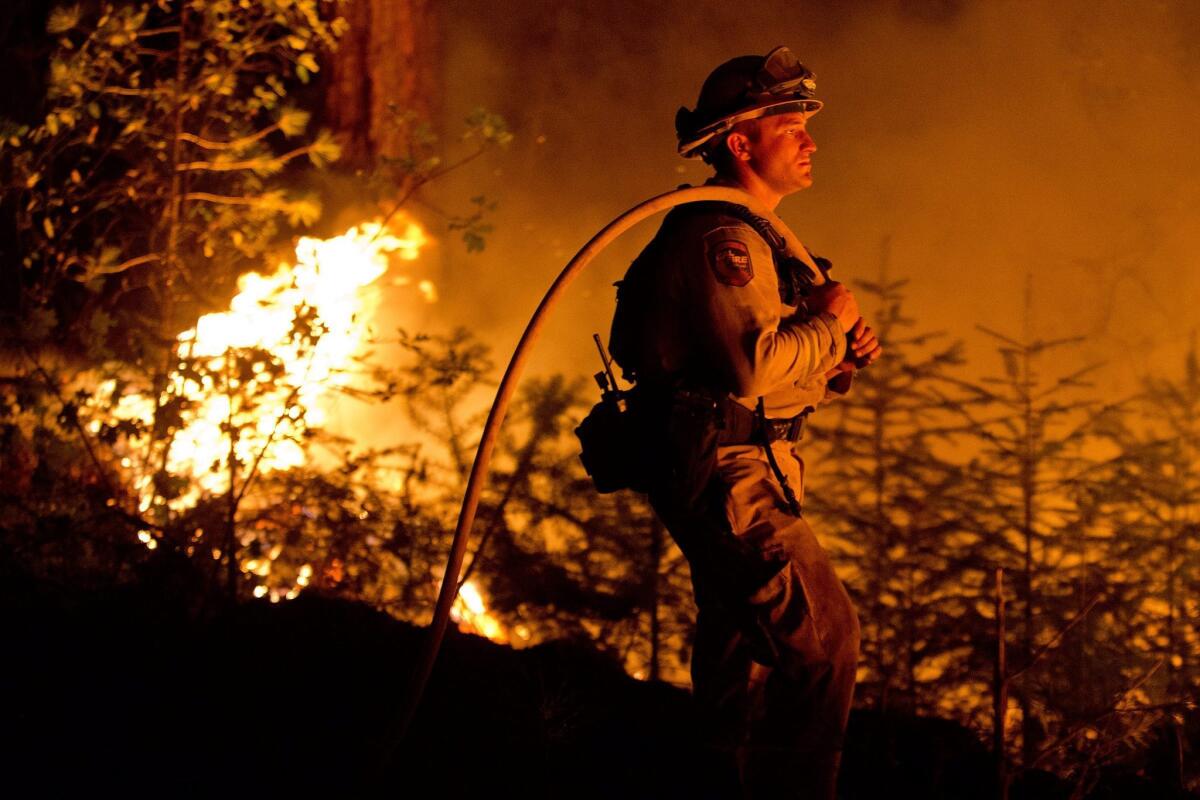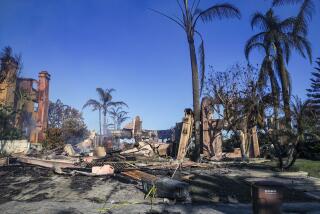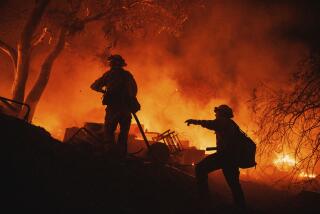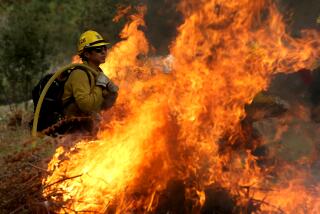Op-Ed: Congress should fund fires for what they are -- disasters

Californians are all too familiar with the devastation forest fires bring. The state has already had more than 1,000 wildfires this year, and the worst of the fire season is just beginning. More than 350,000 acres of national forest have burned in Northern California so far in 2014. And each year recently, we’ve seen more and more acreage burn, and more homes and lives, as well as natural resources, put in jeopardy.
Not surprisingly, as wildfires have become more frequent and severe, the cost of battling them has also increased. In 1985, wildfire suppression cost the U.S. Forest Service about $240 million. In 2012, that number was $1.7 billion.
A lot of factors have contributed to the increase in fires — and the consequent increase in spending to suppress them — including a warming climate, drought and expanded development near fire-prone areas. But another reason for the growing number of fires has to do with the federal government’s refusal to adapt to the growing threat.
A massive forest fire is a natural disaster in the same way a hurricane or tornado is. But while the government seems to understand that you can’t budget for a hurricane, paying for the disaster out of a special emergency account funded specifically for that purpose, it still treats the cost of dealing with catastrophic fires as it does any other expenditure. An annual amount is budgeted to fight them, with little more than an estimate of what the fire season will actually bring.
This archaic method of funding fire suppression is wreaking havoc with Forest Service budgets, and it is also making it likely we’ll see more and costlier fires.
In recent years, we’ve seen the United States Forest Service have to transform itself into the “United States Fire Service.” Today, fire suppression accounts for more than half of the agency’s budget. And even then, Congress isn’t appropriating enough money to cover the true cost of battling fires, forcing the Forest Service to borrow from other, non-fire accounts.
This year, Agriculture Secretary Tom Vilsack announced that the Forest Service had run out of money for fire suppression at the end of August, meaning “fire borrowing” had to begin. For the rest of the year, other Forest Service projects will have to be halted or severely curtailed, as money appropriated to fund them is diverted to pay for fire suppression. This is no way to run an agency.
Moreover, the borrowing may be ensuring that fires become more dangerous and more costly. As the Forest Service siphons money from other accounts to pay for battling fires, it has to cut back on programs expressly aimed at reducing fire risk. Millions have been diverted from hazardous fuels reduction, forest health management and vegetation management, all of which is likely to mean bigger fires in the future.
Thankfully, a sensible solution to this problem exists in the Wildfire Disaster Funding Act. This proposed legislation would finally treat America’s most catastrophic wildfires in the way it treats other natural disasters, meaning that funds required to fight severe fires would be drawn from a federal emergency account rather than borrowed from other Forest Service programs. But Congress failed to take action on the bipartisan bill before it left for summer recess. For the sake of California’s future, it is time for Majority Leader Kevin McCarthy (R-Bakersfield) to put the Wildfire Disaster Funding Act on the House calendar.
The Wildfire Disaster Funding Act would allow hundreds of millions of dollars now diverted to fight fires to be restored to programs Congress intended to fund, including ones designed for wildfire prevention and forest health. That would in all likelihood result in fewer wildfires, healthier forests and better wildlife habitat. And, in the long term, it could save billions of federal dollars that are now, quite literally, going up in smoke.
Dale N. Bosworth served as chief of the United States Forest Service from 2001 to 2007. Jack Ward Thomas was chief from 1993 to 1996. Michael Dombeck was chief from 1997 to 2001.
Follow the Opinion section on Twitter @latimesopinion
More to Read
A cure for the common opinion
Get thought-provoking perspectives with our weekly newsletter.
You may occasionally receive promotional content from the Los Angeles Times.






